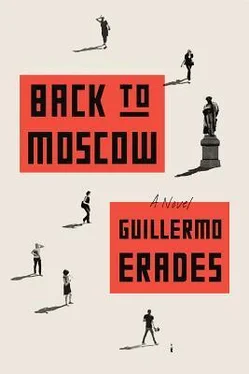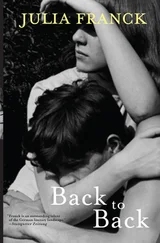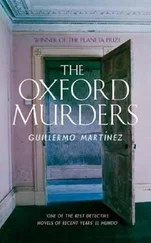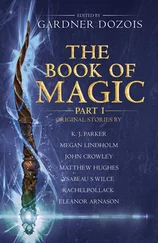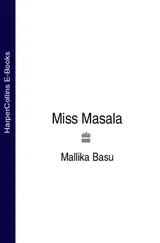This geopolitical rapprochement cascaded down to our everyday Moscow lives, where we all perceived a small post 9/11 shift. Expats were in vogue again, and for a few weeks, we — the ambassadors of Western civilisation — were the recipients of kind words of support.
It didn’t last long though. By the end of the year, as the images of the planes crashing into the towers lost part of their power to shock, things went back to normal. Russia redirected its course away from the West, disappointed perhaps that its friendly gestures had not been taken seriously. And, in Moscow, expats no longer deserved any particular sympathy.
Stepanov said the Americans had done this to themselves; not by provoking others, as The Exile had suggested, but by actually planning and carrying out the attack on their own soil. He maintained it was all a CIA conspiracy. This theory was widely held in Moscow at that time. It was a bizarre hypothesis which I couldn’t understand until, at some point, after long drunken discussions on the topic, it dawned on me why Russians didn’t know how to deal with 9/11. Russians were envious of Americans and regretted that 9/11 hadn’t happened to them instead. They couldn’t bear the fact that an event so full of suffering and historical meaning, an event that was to mark the fate of the new century, had happened to undeserving Americans instead of Russians — hungry and ready as they were for national tragedies.
READING WAR AND PEACE IN Russian was an ambitious project I had tackled several times but never managed to carry through. I knew I was no real expert in Russian literature — and, clearly, I lacked the intellectual focus to become one. But if I could at least claim to have read War and Peace in its original language, word by word as Lev Nikolaevich had written it, I thought I would somehow feel less of a fraud.
For the last few days, I had been going every morning to Coffee Beans. I would sit by the large front window and carefully arrange the two volumes of my 1944 edition on the table, next to a dictionary and one of my notebooks. I would ritually spend a few minutes holding my hot mug of coffee, observing how Muscovites fought winter in the street. For some reason, I took pleasure in the contrast between the two sides of the glass wall — the world of high ceilings, gilded mirrors and fresh coffee, and the world of crawling traffic, red noses, teary eyes and thick scarves. From the warm interior of Coffee Beans, listening to cool jazz, people in the street appeared to me as fictional characters.
I would take my time with every page, sipping coffee, flipping through the dictionary, struggling with bizarre Russian words I had never encountered before and, I suspected, I would never encounter again. I would take notes, my work occasionally slowed by my having to exchange looks with a dyev at a nearby table.
Every now and then, the thick double doors of Coffee Beans would open to let a new customer in, coat peppered with snowflakes, shoes caked with ice and mud. The floor of the café was constantly being mopped by diligent waitresses in a Sisyphean effort to keep winter outside, so, after passing through the door, newcomers would hesitate for a few seconds before defiling the shiny floors. To me it felt as if each newcomer were an intruder who had, for some reason, less right to be in the café than me.
A few days into my latest War and Peace attempt I realised that I wasn’t making significant progress, that at this pace it would take me months, if not years, to finish Lev Nikolaevich’s book. I decided to recalibrate my objectives. After all, I told myself, it’s not that I had to read the entire book in Russian. A taste of the original language was all I needed, as long as I knew the story well enough to form some original opinions of my own. So, one morning, before entering Coffee Beans, I walked into the Moskva Bookshop and, overcoming a vague sense of guilt, I bought an English translation.
Now I would flip through the pages of the cheap Penguin Classics translation — which I kept half-hidden under the table — identifying interesting passages that I could later read in Russian in my beautiful soviet edition. I couldn’t be bothered with the war bits. Lyudmila Aleksandrovna had told me that Tolstoy’s battle scenes were masterpieces in their own right, the best depictions of violence in world literature, she said, so realistic and vivid. But when I tried to read them I would soon lose interest. I always ended up skipping those sections and looking for the passages about the lives of the characters in times of peace, analysing Lev Nikolaevich’s take on his female characters.
One morning I sat by the window of Coffee Beans observing how snowflakes floated among the cables and banners of Tverskaya. They didn’t seem to reach the ground, the snowflakes — they glided peacefully towards the street’s surface, then hovered above it for a moment, weightless, as if having second thoughts, and were briskly swept away by the breeze, sideways and upwards, back into the sky. Of course the snowflakes had to reach the ground at some point, I thought — Tverskaya was covered in white.
I was reading the scenes in which Natalya Rostova made an appearance. At the beginning of the book Natalya is only twelve, but she already shows the features of a full dyevushka in the making. She’s lovely, Natalya, and gracious — the pure embodiment of youth. I had read somewhere that Tolstoy had fallen in love with Natalya’s character and I could see where that theory came from. Although she was not described as being particularly attractive, she was depicted in a special light. Was she Tolstoy’s ideal woman? Unlike Pushkin’s Tatyana, who was too good to be true, Tolstoy’s Natalya felt real, alive. Natalya Rostova was capricious, coquettish and, in her own early nineteenth-century way, a bit of a tease. She would certainly fit in modern-day Moscow.
I was absorbed by these thoughts, taking some notes, when Colin walked in, holding a copy of The Exile that he had picked up at the entrance. He shook the snow off his coat.
‘Beautiful morning,’ he said as he placed the newspaper on my table and his coat on the nearby rack. He was wearing a black turtleneck sweater. ‘Saw you through the window. Another cup of coffee?’
‘Sure.’
When he came back with two mugs of fresh coffee, I shared my thoughts about Natalya Rostova.
Colin listened attentively, stirred his coffee and took a sip. His face was as red as a beetroot. ‘If you had to choose between Natalya Rostova and Anna Karenina,’ he said, ‘who would you rather fuck?’
‘Do you mean who’s my favourite among Tolstoy’s female characters?’
‘I mean, who would you take to bed.’
I thought about Colin’s question, trying to picture both Anna and Natalya as sexual partners.
‘Natalya,’ I said, ‘towards the end of the book.’
‘Why?’
‘She’s more lovable than Karenina.’
‘I think Anna Karenina would be a better fuck,’ Colin said.
‘How could you possibly know?’ I said, for some reason annoyed by Colin’s disdain for Natalya. ‘You’ve never read War and Peace . What do you know about Natalya?’
‘Who’s read the entire book? True, I don’t really know Natalya Rostova, but I feel Karenina is more my type of woman.’
‘Unfaithful? Suicidal?’
Colin thought about it for a few seconds. ‘Strong, determined.’
‘Natalya is more unpredictable,’ I said. ‘More fun.’
Colin took a sip of coffee. ‘Is Natalya honest? Faithful?’
‘Not entirely,’ I admitted. ‘When it comes to men, she’s rather fickle.’
‘All Russian women are,’ Colin said. He was sweating, pulling on the neck of his black sweater to let some air onto his chest. ‘In the end, if you look at it, they are all unfaithful. Anna Karenina, Natalya Rostova—’ Colin took another sip of coffee and looked out of the window, giving himself more time to think of the names of other unfaithful Russian characters. ‘You know,’ he said after a while, ‘all of them.’
Читать дальше
